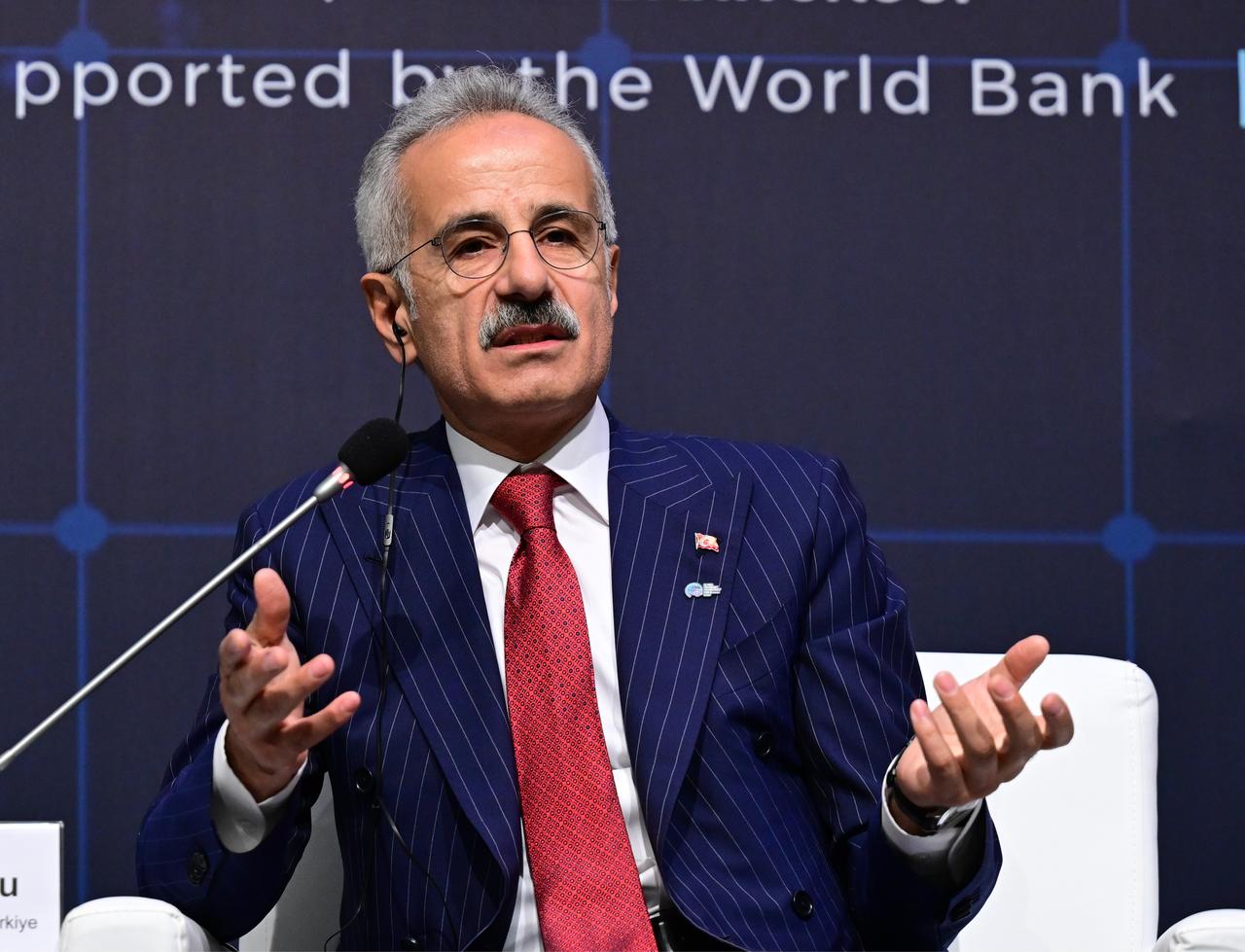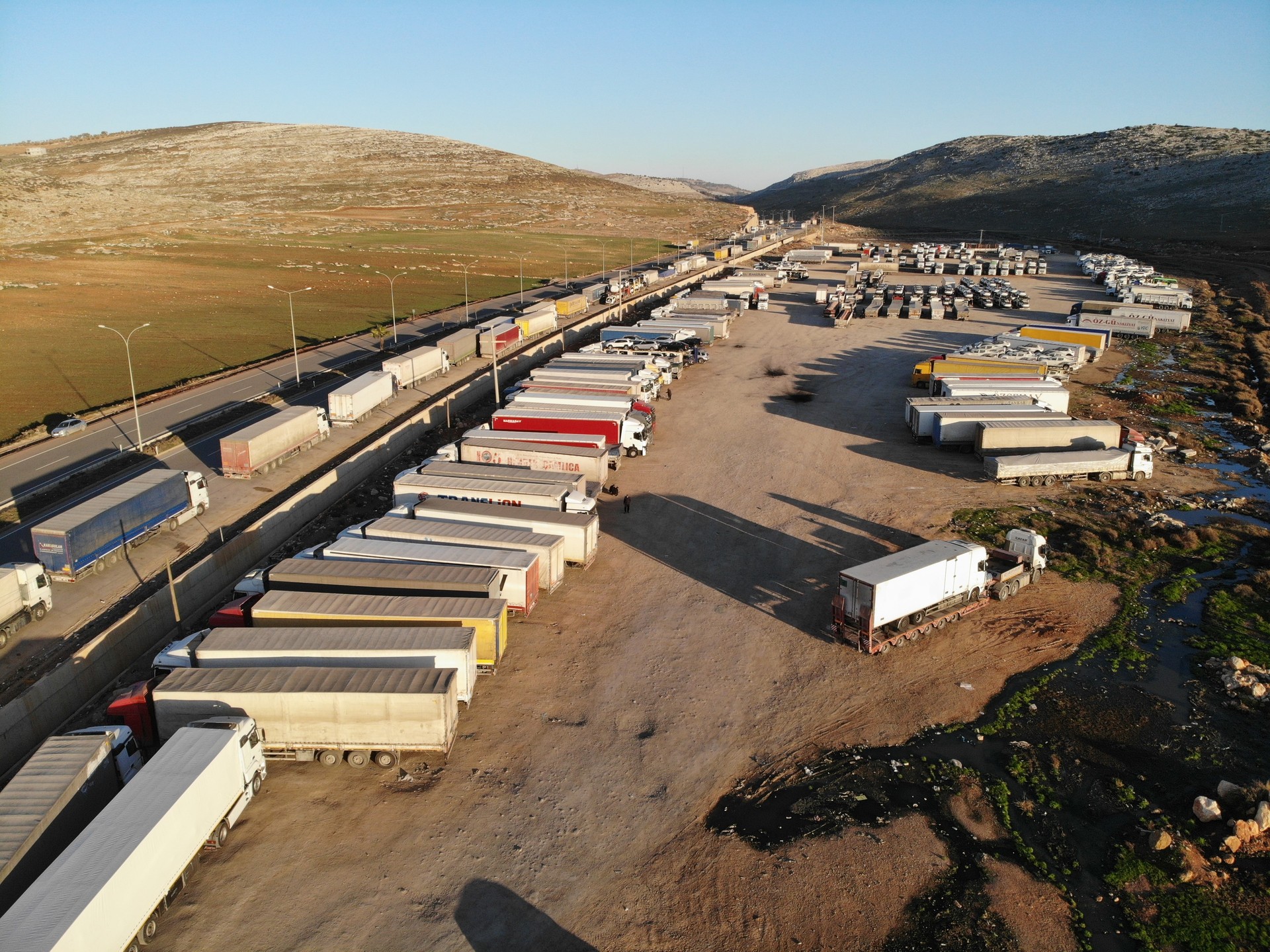
Transport and Infrastructure Minister Abdulkadir Uraloglu announced that Türkiye and Syria have signed a memorandum of understanding for international road transport cooperation, enabling direct cargo transport between the two countries without transfer at border crossings.
Uraloglu told an Anadolu Agency (AA) correspondent during the "Global Transport Connectivity Forum" at the Istanbul Congress Center that cargo transfer at border gates will end, allowing loads to be transported directly from Türkiye to Syria and from Syria to Türkiye without transfer.

Under the new agreement, all shipments will be transported directly between Türkiye and Syria without the need for offloading and reloading at border gates.
“Following the International Road Transport Agreement signed in 2004, commercial transport between the two countries will resume," said Uraloglu, adding, "Cargo can now be moved directly from Türkiye to Syria and from Syria to Türkiye, without any transshipment at border crossings."
Uraloglu noted that the agreement also covers the resumption of transit transportation, allowing Türkiye to access Jordan, Saudi Arabia, the United Arab Emirates, Qatar, and other Gulf nations via Syrian territory.
Highlighting that cargo can reach Gulf countries via Syria through a shorter route and faster delivery, Uraloglu made the following statement: "The restart of transport between Türkiye and Syria will strengthen not only the bilateral relationship but also the regional trade position of Türkiye and Syria between Europe and Asia, while integrating the Middle Corridor with Gulf countries."
"Turkish and Syrian officials also decided to cooperate in different areas of passenger and freight transport and organize mutual training programs," he added.

The memorandum builds upon the existing International Road Transport Agreement signed between the two countries in 2004, providing a framework for renewed commercial transport activities.
As part of the agreement, Turkish and Syrian authorities decided to establish cooperation in various areas of passenger and freight transport, including the organization of mutual training programs to enhance operational efficiency and safety standards.